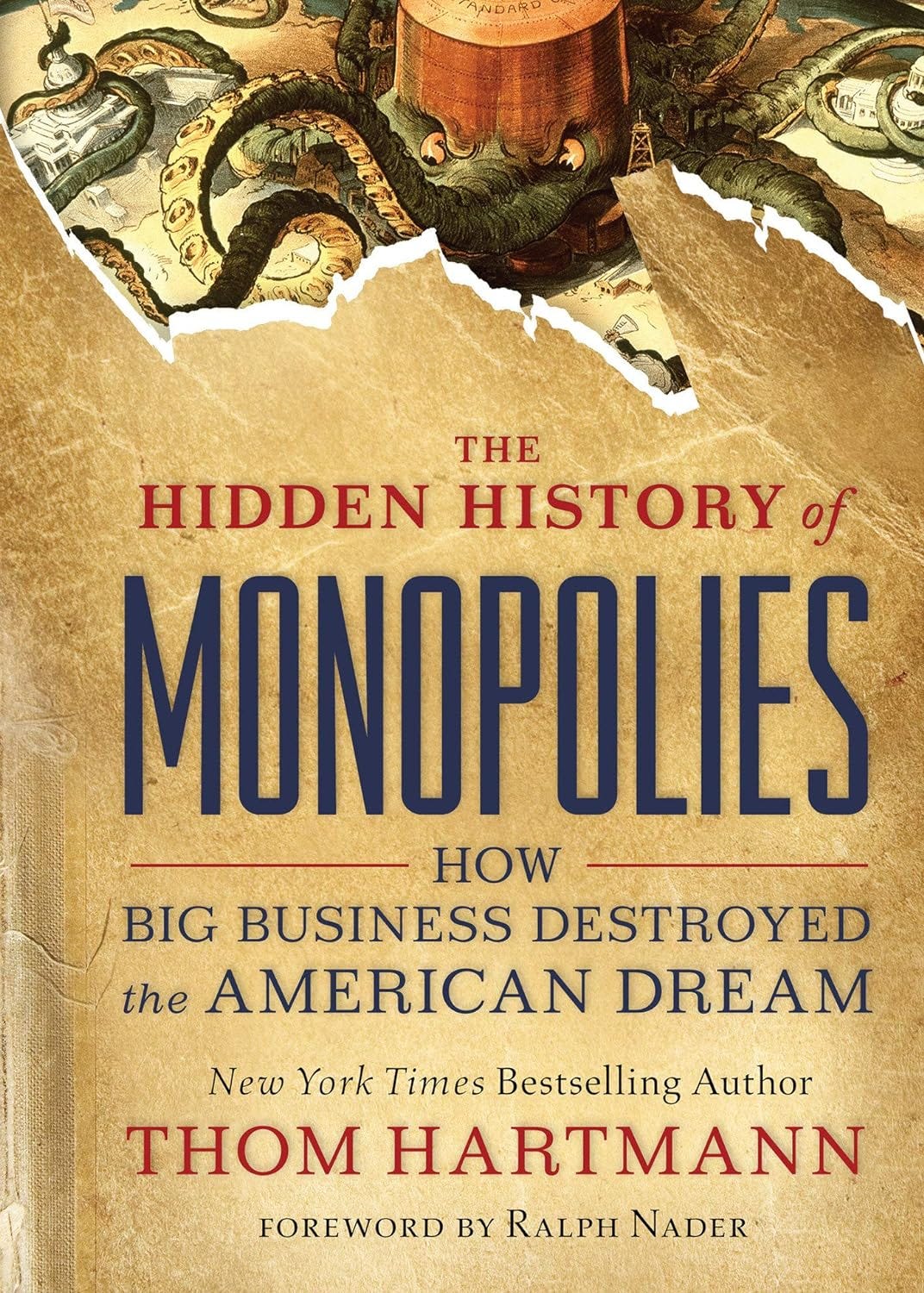The New Feudalism
The Hidden History of Monopolies: How Big Business Destroyed the American Dream

The war for the heart and soul of America, funded by libertarian billionaires, has moved into the press, the internet, and our political arena. In that struggle, it’s more accurate to portray libertarians as “feudalists” than as advocates of anything new.
Feudalism doesn’t exclusively refer to a point in time or history when streets were filled with mud and people lived as peasants. More broadly, it refers to an economic and political system, just like democracy or communism or socialism or theocracy.
The biggest difference is that instead of power being held by the people, the government, or the church, those who own property and the other necessities of life hold power. At its essential core, feudalism could be defined as “government of, by, and for the rich.”55
Marc Bloch is one of the great 20th-century scholars of the feudal history of Europe. In his book Feudal Society, he points out that in almost every case, with both European feudalism and feudalism in China, South America, and Japan, “feudalism coincided with a profound weakening of the State, particularly in its protective capacity.”56
Given most accepted definitions of feudalism, feudal societies can’t emerge in nations with a strong social safety net and a proactive government. But when the wealthiest in a society seize government and then weaken it so that it can’t represent the interests of the people, the transition has begun into a new era of feudalism. “European feudalism should therefore be seen as the outcome of the dissolution of older societies,” Bloch says.
Whether the power and wealth agent that takes the place of government is a local baron, lord, king, or corporation, if it has greater power in the lives of individuals than does a representative government, the nation has dissolved into feudalism.
Bluntly, Bloch states, “The feudal system meant the rigorous economic subjection of a host of humble folk to a few powerful men.”57 This doesn’t mean the end of government but, instead, the subordination of government to the interests of the feudal lords. Interestingly, even in feudal Europe, Bloch points out, “[t]he concept of the State never absolutely disappeared, and where it retained the most vitality men continued to call themselves ‘free.’”58
The transition from a governmental society to a feudal one is marked by the rapid accumulation of power and wealth in a few hands, with a corresponding reduction in the power and responsibilities of government. Once the rich and powerful gain control of the government, they turn it upon itself, usually first radically reducing their own taxes, while raising taxes on the middle class and poor. Says Bloch: “Nobles need not pay taille [taxes].”
Bringing this to today, consider that in 1982, just before the first Reagan-Bush “supply side” tax cut, the average wealth of the Forbes 400 was $200 million. Just four years later, their average wealth had more than doubled to over $500 million each, aided by massive tax cuts.
Today, as the Institute for Policy Studies notes, “With a combined worth of $2.34 trillion, the Forbes 400 [individuals] own more wealth than the bottom 61 percent of the country combined, a staggering 194 million people.”59 Forbes magazine, for 2017, reported, “The minimum net worth to make The Forbes 400 list of richest Americans is now a record $2 billion. . . . [T]he average net worth rose to $6.7 billion.”60
While the Forbes 400 richest Americans have gone from an average wealth of $200 million in 1982 to over $6 billion today, the average wealth of working Americans stayed flat, in the face of explosions in the costs of health, education, and housing.
Median household wealth in 2013, for example, was $81,000—about the same as in 1983 (the first year of household wealth surveys by the federal government). 61 But the median price of a house in 1983—around $74,000 (or $180,000 in today’s dollars 62)—has, according to the US Census Bureau, risen to over $220,000 today (and it’s massively higher in most cities).63 In 1983, the average person working a minimum wage job could afford a college education; now there’s over $1.7 trillion in student debt.
And in 2017, Trump and his GOP doubled down on their plan to move America from democracy to feudal oligarchy by cutting more than $1.5 trillion in taxes, most of the cuts directed to the uber-rich and giant monopolistic corporations. As a result, massive companies like Amazon, Chevron, General Motors, Delta, Halliburton, and IBM paid nothing in federal income taxes the next year.
In every sector of our economy, big businesses have been concentrating power since the 1980s, and America’s once-strong middle class has been crushed under their heels.


